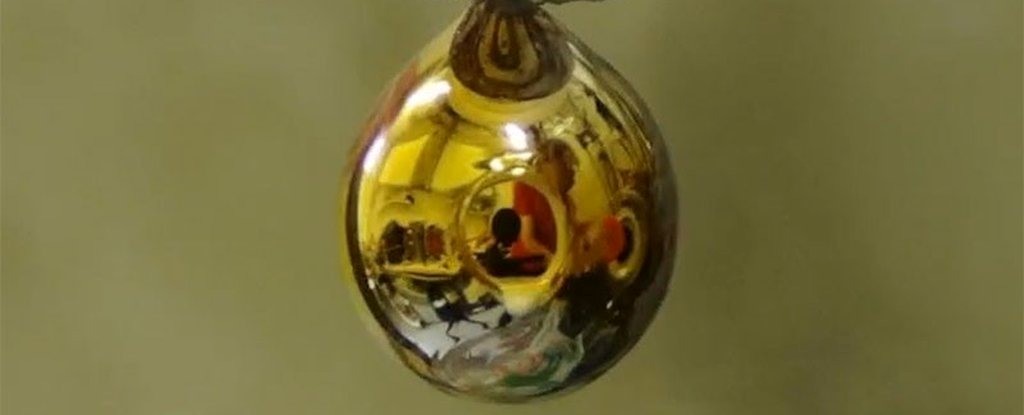
Scientists transformed pure water into a metal
Pure water only becomes "metallic" – electronically conductive – at extremely high pressures, beyond our current abilities to produce in a lab.
It's not only high pressures that can induce this metallicity in pure water.
By bringing pure water into contact with an electron-sharing alkali metal – in this case an alloy of Sodium and Potassium – free-moving charged particles can be added, turning water metallic.
These substances release their outer electrons very easily, which means they could induce the electron-sharing properties of highly pressurized pure water without the high pressures.
In a vacuum chamber, the team started by extruding from a nozzle a small blob of sodium-potassium alloy, which is liquid at room temperature, and very carefully added a thin film of pure water using vapor deposition.
Upon contact, the electrons and metal cations flowed into the water from the alloy, and turned the water conductive – just like we should see in metallic pure water at high pressure.
 English
English Arabic
Arabic


